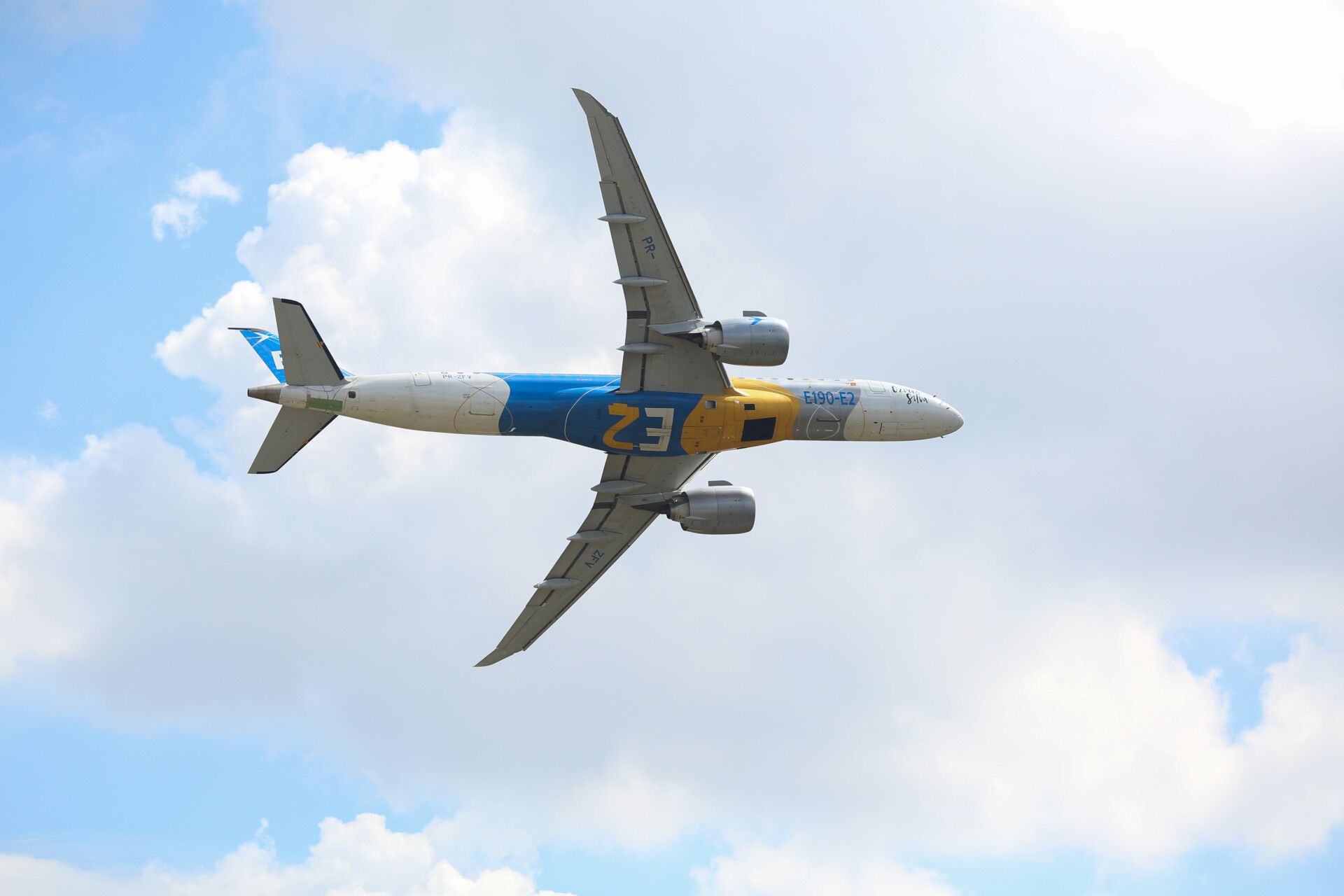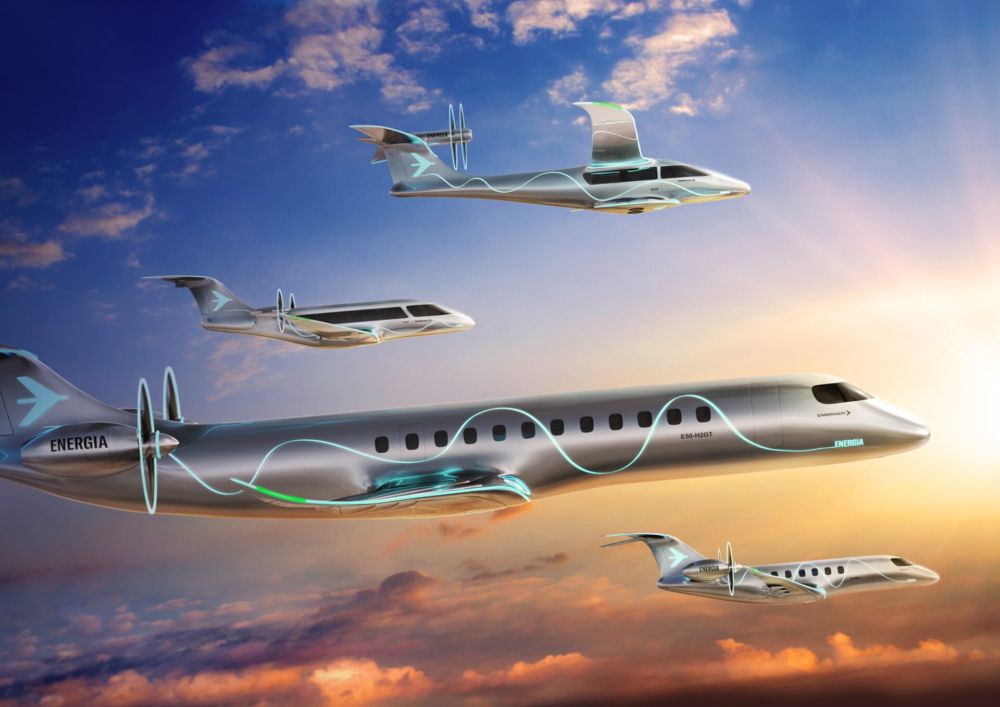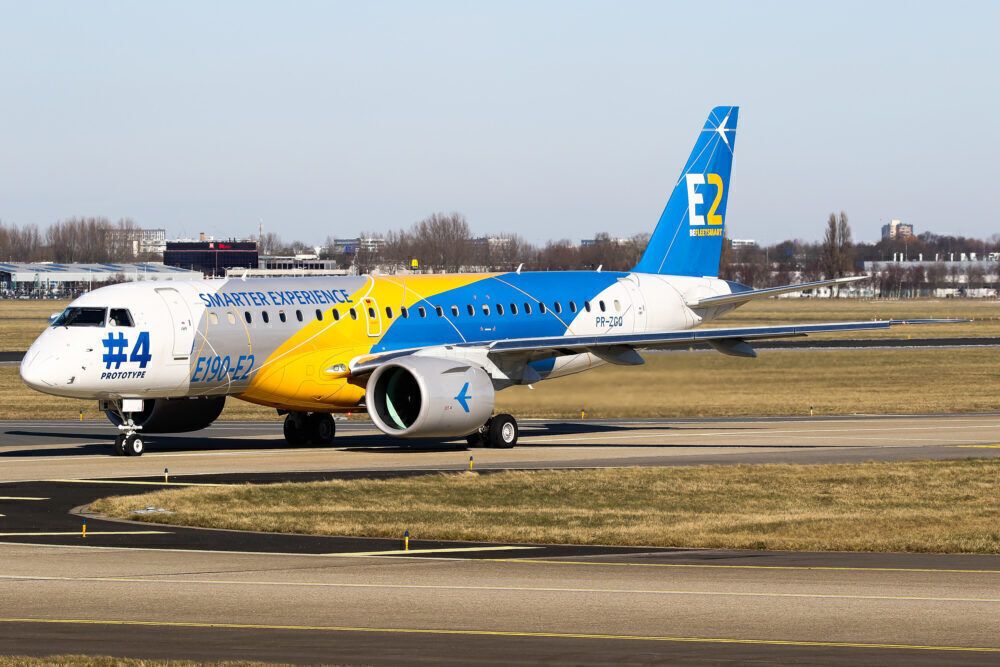Speaking at the Future Flying Forum, Embraer's Arjan Meijer expounded on the challenges the industry faces in getting Sustainable Aviation Fuel to scale. Meanwhile, the planemaker's CEO believes that while government incentives are needed to get over the first hump, in the end, it is the passengers that will pay the additional costs.
Brazilian regional planemaker Embraer is betting big on decarbonizing technologies. The manufacturer recently released four new concepts driven by hybrid-propulsion, as well as pure electric and hydrogen-powered aircraft. Furthermore, innovation subsidiary Embraer EVE is moving ahead with its eVTOL program, looking to have urban air mobility vehicles over the fjords of Norway and the landscape of Kenya within a few years' time.
However, until the new technologies come to fruition, most, including Embraer, are of the meaning that Sustainable Aviation Fuel (SAF) will be, at the very least, a key interim solution to lowering CO2 emissions across the industry. Meanwhile, there are many hurdles also on the path to bringing SAF to a scale large enough to create a meaningful dent in aviation's climate impact.
Production the biggest challenge
Speaking to Simple Flying's Managing Editor Joanna Bailey at the Future Flying Forum, Embraer's CEO Arjan Meijer expressed how the company is involved in the Brazilian arena to see how it can boost the production of SAF but admitted it is a difficult task.
"The production of SAF is, of course, the biggest challenge. As an industry, we also need to think about where are the SAF and hydrogen going to come from and how are we going to get it to the plane," Meijer said during the interview.
Passing of the bill to the end consumer
When discussing where the additional funds for the scaling up and usage of SAF are to come from, Meijer believes it will mostly come down to the end customer. However, government involvement will be needed to 'get over the hump' due to the disconnect between demand and supply related to price level.
"Airports will have to invest in infrastructure and will for sure pass that bill onto airlines, and they will pass it onto the customers, so it is all going to find its way. But it is really about getting over the first hurdle as an industry, and then I think we'll see the SAF production evolve over the years ahead. But there is a lot of SAF that is going to be needed, and there's a big challenge ahead," Meijer said.
Stay informed: Sign up for our daily and weekly aviation news digests.
Test flights for 100% SAF forthcoming
At the beginning of this week, Embraer also revealed it is planning to operate test flights with its E2 generation aircraft next year that will run on 100% SAF. In doing so, it will join the likes of Rolls-Royce and Airbus that have already performed test flights with their products powered solely by sustainable fuel.
Meanwhile, just yesterday, United Airlines operated a passenger flight (although not paying customers) from Chicago to Washington with a Boeing 737 with one engine powered 100% by SAF.



